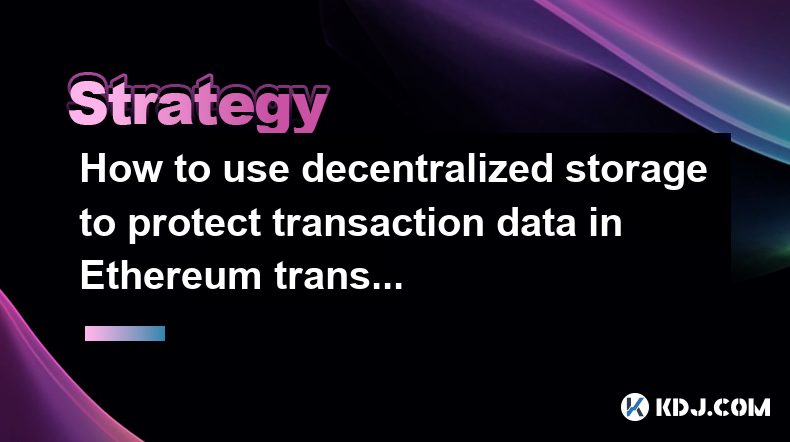-
 Bitcoin
Bitcoin $89,022.9568
-7.07% -
 Ethereum
Ethereum $2,421.7838
-9.64% -
 Tether USDt
Tether USDt $0.9996
-0.10% -
 XRP
XRP $2.2221
-10.43% -
 BNB
BNB $613.0754
-4.19% -
 Solana
Solana $138.6603
-12.94% -
 USDC
USDC $1.0000
-0.01% -
 Dogecoin
Dogecoin $0.2066
-10.38% -
 Cardano
Cardano $0.6587
-10.26% -
 TRON
TRON $0.2298
-7.25% -
 Chainlink
Chainlink $14.7348
-11.41% -
 Avalanche
Avalanche $21.2831
-10.20% -
 Stellar
Stellar $0.2835
-11.75% -
 Toncoin
Toncoin $3.4619
-5.58% -
 Sui
Sui $2.7915
-12.67% -
 Litecoin
Litecoin $111.8944
-9.29% -
 UNUS SED LEO
UNUS SED LEO $8.9539
-6.49% -
 Shiba Inu
Shiba Inu $0.0...01382
-6.44% -
 Hedera
Hedera $0.1848
-16.53% -
 MANTRA
MANTRA $7.7746
-8.62% -
 Polkadot
Polkadot $4.4088
-6.52% -
 Hyperliquid
Hyperliquid $18.9193
-14.10% -
 Ethena USDe
Ethena USDe $0.9998
-0.07% -
 Bitcoin Cash
Bitcoin Cash $285.4435
-8.77% -
 Dai
Dai $0.9998
-0.01% -
 Bitget Token
Bitget Token $4.3020
-11.47% -
 Uniswap
Uniswap $7.8455
-7.96% -
 Monero
Monero $222.3655
-4.71% -
 NEAR Protocol
NEAR Protocol $2.9241
-12.01% -
 Pepe
Pepe $0.0...07854
-11.79%
Stock trading and currency trading skills
Understanding the key concepts of stock trading, including market capitalization, dividends, and investing strategies, is essential for successful participation in the stock market.
Jan 09, 2025 at 04:56 am

Key Points:
- Understanding the similarities and differences between stock trading and currency trading
- The fundamentals of stock trading, including market capitalization, dividends, and investing strategies
- The key components of currency trading, such as currency pairs, exchange rates, and spreads
- Practical skills for successful stock and currency trading, including technical analysis, market analysis, and risk management
- Advanced strategies for experienced traders, such as options trading and futures trading
Stock Trading Fundamentals:
- Market Capitalization: Refers to the value of a company's outstanding shares and is a measure of its size and market presence. Larger companies typically have higher market caps and are considered less risky investments.
- Dividends: Distributions paid to shareholders from a company's profits or retained earnings. Dividends provide a source of passive income for investors and indicate the company's financial health.
- Investing Strategies: Include value investing (buying undervalued stocks), growth investing (investing in rapidly growing companies), and income investing (focusing on stocks with high dividend yields).
Currency Trading Fundamentals:
- Currency Pairs: Trading occurs in currency pairs, such as EUR/USD (Euro/US Dollar) or GBP/JPY (British Pound/Japanese Yen). Traders try to predict currency price movements relative to each other.
- Exchange Rates: The value of one currency relative to another, constantly fluctuating in the foreign exchange market. Currency traders speculate on these exchange rate movements to make profits.
- Spreads: The difference between the bid (selling) price and the ask (buying) price of a currency pair. Spreads represent the commission charged by brokers for facilitating trades.
Practical Trading Skills:
- Technical Analysis: Involves analyzing past price data to identify trends, patterns, and support and resistance levels. Traders use indicators and charting tools to make trading decisions.
- Market Analysis: Monitoring macroeconomic data, news events, and market sentiment to assess the direction of the market. Traders consider factors like interest rates, economic growth, and geopolitical events.
- Risk Management: Managing exposure to potential losses is crucial. Traders set stop-loss orders to limit downside risk and calculate risk-reward ratios to ensure profitability.
Advanced Trading Strategies:
- Options Trading: Provides the option but not the obligation to buy (call option) or sell (put option) an asset at a specified price and expiration date. Traders can use options to hedge against risk or speculate on market movements.
- Futures Trading: Contracts that obligate buyers to purchase or sellers to deliver an asset at a predetermined price on a future date. Futures are used for hedging, speculating on price movements, and locking in prices.
FAQs:
What are the risks involved in stock and currency trading?
- Both stock and currency trading involve significant risks of capital loss. Market volatility, economic conditions, and geopolitical events can adversely impact investment performance.
How much capital do I need to start trading?
- The amount of capital required varies depending on the type of trading and the risk tolerance of the trader. It's recommended to start with a small amount and gradually increase it as experience is gained.
How do I choose a reputable broker?
- Look for brokers licensed by respected regulatory agencies, offer competitive spreads and commissions, and provide reliable customer support. Consider researching online reviews and broker comparisons.
Can I make a living from trading?
- While it's possible to make a living from trading, it requires significant knowledge, experience, and a strong understanding of market dynamics. Consistent profitability requires dedication, discipline, and risk management skills.
Should I trade on margin?
- Margin trading involves borrowing funds from a broker to increase potential gains. However, it also amplifies potential losses. Margin trading is recommended only for experienced traders with a high risk tolerance and a solid understanding of financial instruments.
Disclaimer:info@kdj.com
The information provided is not trading advice. kdj.com does not assume any responsibility for any investments made based on the information provided in this article. Cryptocurrencies are highly volatile and it is highly recommended that you invest with caution after thorough research!
If you believe that the content used on this website infringes your copyright, please contact us immediately (info@kdj.com) and we will delete it promptly.
- Bitcoin (BTC) Price Prediction: Will March Trigger a Bullish Comeback?
- 2025-02-25 21:00:29
- The Last Word: Entrepreneurial Framework Conditions in Japan
- 2025-02-25 21:00:29
- Laser Digital AM Launches Fund with Exposure to NEAR Token
- 2025-02-25 21:00:29
- The Aptos Ecosystem Keeps Making Strides in the Blockchain Space
- 2025-02-25 21:00:29
- Pi Coin Price Prediction 2023: Will PI Recover After Sharp 60% Decline?
- 2025-02-25 21:00:29
- Official Trump Price Shows Signs Of A Likely Rebound
- 2025-02-25 21:00:29
Related knowledge

What tools or accounts are needed to buy and sell cryptocurrencies?
Feb 25,2025 at 08:00pm
How to Buy and Sell Cryptocurrencies: A Comprehensive GuideKey Points:Understand the different types of cryptocurrency exchanges.Create an account with a reputable exchange.Fund your account with fiat currency or other cryptocurrencies.Place buy or sell orders based on market conditions.Track your trades and manage your portfolio effectively.Tools and A...

How to buy and sell cryptocurrencies through P2P platforms?
Feb 25,2025 at 05:27pm
1. Choose the right P2P platform Security: Check whether the platform has complete security measures, such as multiple encryption, cold wallet storage, etc., to ensure the security of funds and personal information.Transaction fees: Understand the proportion of handling fees charged by the platform. The fees charged by different platforms are different,...

What are the fees for buying and selling cryptocurrencies?
Feb 25,2025 at 05:18pm
Transaction feePlatform charging method: Most cryptocurrency trading platforms charge handling fees at a certain proportion of the transaction amount. For example, some platforms charge 0.1% to 0.5% per transaction. If you trade cryptocurrency of 10,000 yuan, you will be charged at 0.2%, and the handling fee will be 20 yuan.Influencing factors: transact...

When is the best time to buy and sell cryptocurrencies?
Feb 25,2025 at 04:50pm
Analyze market trendsMarket trends are the key to judging the timing of buying and selling. In an upward trend, prices continue to hit highs and lows gradually rise. You can buy when you pull back to support; on the contrary, the price continues to fall, the highs gradually decrease, and you can sell when you rebound to resistance. We must continue to p...

How to deal with the uncertainty caused by network forks in Ethereum transactions?
Feb 25,2025 at 07:30pm
Key PointsUnderstanding Network ForksPreparing for Potential ForksMitigating Risks During ForksPost-Fork ActionsFAQsUnderstanding Network ForksNetwork forks occur when a blockchain undergoes a software upgrade, leading to a split into two distinct chains:Hard fork: Incompatible with the previous version, requiring all nodes to upgrade to continue valida...

How to use decentralized storage to protect transaction data in Ethereum transactions?
Feb 25,2025 at 07:48pm
Key Points of the Article:Transaction Data in Ethereum Transactions and its ImportanceAdvantages of Decentralized Storage over Centralized Storage for Transaction DataStep-by-Step Guide to Using Decentralized Storage for Transaction DataBenefits of Using Decentralized Storage for Transaction Data ProtectionBest Decentralized Storage Options for Ethereum...

What tools or accounts are needed to buy and sell cryptocurrencies?
Feb 25,2025 at 08:00pm
How to Buy and Sell Cryptocurrencies: A Comprehensive GuideKey Points:Understand the different types of cryptocurrency exchanges.Create an account with a reputable exchange.Fund your account with fiat currency or other cryptocurrencies.Place buy or sell orders based on market conditions.Track your trades and manage your portfolio effectively.Tools and A...

How to buy and sell cryptocurrencies through P2P platforms?
Feb 25,2025 at 05:27pm
1. Choose the right P2P platform Security: Check whether the platform has complete security measures, such as multiple encryption, cold wallet storage, etc., to ensure the security of funds and personal information.Transaction fees: Understand the proportion of handling fees charged by the platform. The fees charged by different platforms are different,...

What are the fees for buying and selling cryptocurrencies?
Feb 25,2025 at 05:18pm
Transaction feePlatform charging method: Most cryptocurrency trading platforms charge handling fees at a certain proportion of the transaction amount. For example, some platforms charge 0.1% to 0.5% per transaction. If you trade cryptocurrency of 10,000 yuan, you will be charged at 0.2%, and the handling fee will be 20 yuan.Influencing factors: transact...

When is the best time to buy and sell cryptocurrencies?
Feb 25,2025 at 04:50pm
Analyze market trendsMarket trends are the key to judging the timing of buying and selling. In an upward trend, prices continue to hit highs and lows gradually rise. You can buy when you pull back to support; on the contrary, the price continues to fall, the highs gradually decrease, and you can sell when you rebound to resistance. We must continue to p...

How to deal with the uncertainty caused by network forks in Ethereum transactions?
Feb 25,2025 at 07:30pm
Key PointsUnderstanding Network ForksPreparing for Potential ForksMitigating Risks During ForksPost-Fork ActionsFAQsUnderstanding Network ForksNetwork forks occur when a blockchain undergoes a software upgrade, leading to a split into two distinct chains:Hard fork: Incompatible with the previous version, requiring all nodes to upgrade to continue valida...

How to use decentralized storage to protect transaction data in Ethereum transactions?
Feb 25,2025 at 07:48pm
Key Points of the Article:Transaction Data in Ethereum Transactions and its ImportanceAdvantages of Decentralized Storage over Centralized Storage for Transaction DataStep-by-Step Guide to Using Decentralized Storage for Transaction DataBenefits of Using Decentralized Storage for Transaction Data ProtectionBest Decentralized Storage Options for Ethereum...
See all articles

















































































